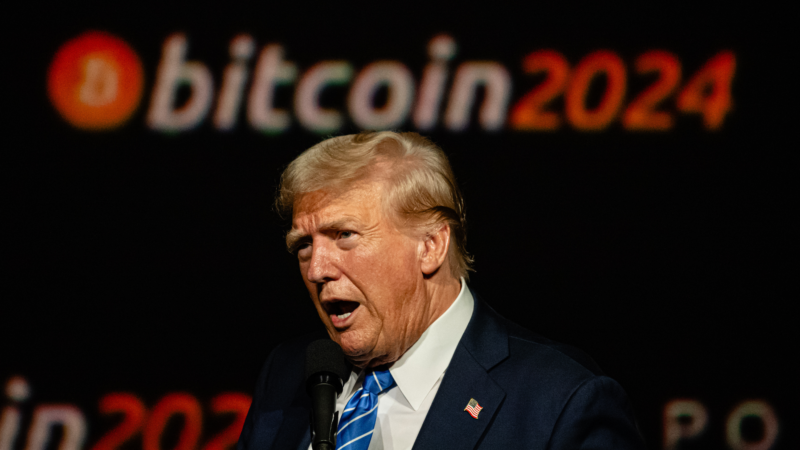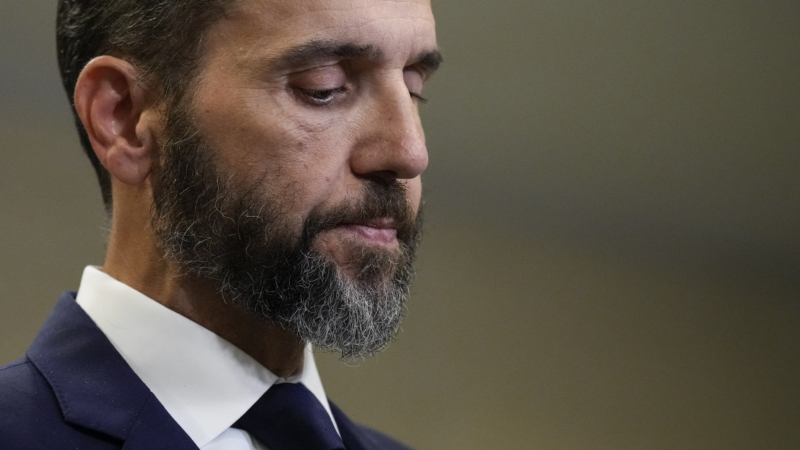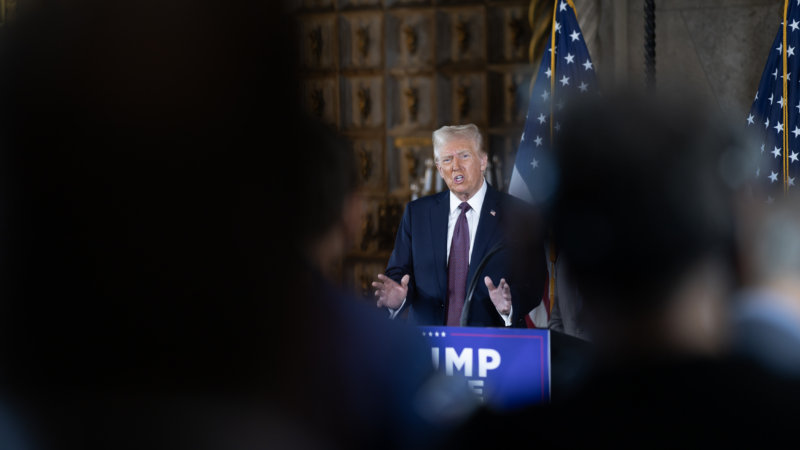Bitcoin hits $100,000 for the first time. 3 things to know about an incredible ride
Bitcoin hit $100,000 for the first time on Wednesday, a remarkable milestone for a cryptocurrency created over 15 years ago from what was essentially computer coding created under mysterious circumstances.
The surge has been nothing short of spectacular. The value of bitcoin has more than doubled this year, turbocharged by the election of Donald Trump.
It’s easy to see why. Trump has promised to make the U.S. “the crypto capital of the planet” by bringing in friendly regulators and ending the tough enforcement actions taken against the sector under President Joe Biden.
In fact, bitcoin hit the $100,000 milestone after Trump picked crypto supporter Paul Atkins as the next chair of the Securities and Exchange Commission earlier in the day, raising hope for a more friendly Wall Street cop for the industry.
Trump has also proposed a crypto “strategic reserve,” potentially turning the country into a direct investor of cryptocurrencies. His family even has financial interests in a crypto venture.
Crypto investors may be cheering Trump on — but critics are raising alarms.
Cryptocurrencies have long had a history of fraud and scams, as the 2022 collapse of crypto exchange FTX made clear. And they have been notoriously volatile. Some critics believe they could even pose a risk to the country’s financial system.
Here are three things to know about bitcoin’s spectacular ride.
How the crypto world was upended by the election of Donald Trump
For bitcoin, Trump’s return to the White House promises to be a game changer. Prices have surged since Election Day, with the rally gaining steam before Trump was even elected as investors anticipated his victory.
It’s been a remarkably rally for a cryptocurrency created by a mysterious character — or characters — by the name of Satoshi Nakamoto, whose real identity has not been unveiled so far.
Trump was once a skeptic of cryptocurrencies, calling them a “scam” and telling Fox Business they were “potentially a disaster waiting to happen.”
Things have changed.
Trump avidly courted votes from the crypto industry by promising to usher in a crypto-friendly administration. On Wednesday, he appointed Atkins to replace current SEC Chair Gary Gensler, who had antagonized the crypto industry with aggressive enforcement actions, especially against key players. Gensler had said last month he would resign on Jan. 20, the day Trump is due to be inaugurated.
Trump is also expected to appoint similarly-minded regulators at other agencies important to the sector, such as the Commodity Futures Trading Commission.
In addition to supporting Trump, the crypto sector spent millions to elect friendly people to Congress. Those efforts included helping Republican Bernie Moreno, a businessman who has expressed support for cryptocurrencies, defeat Democratic Sen. Sherrod Brown in Ohio. Brown is the chairman of the Senate Banking Committee and is skeptical of cryptocurrencies.
Republicans will also control Congress next year, fueling hopes in the crypto sector for far more favorable regulations.

The rally is expected to continue — but it could be volatile
The swiftness of the bitcoin rally over the past couple of weeks has investors hoping for further gains. But they’re not just optimistic because of Trump and the Republican Congress.
Bitcoin is becoming more mainstream, especially since earlier this year when Gensler reluctantly approved the launch of investment funds tied to bitcoin (called exchange-traded funds) that can be held by average investors.
These funds have proven popular, with overall assets rising above $100 billion. That’s increasing demand for bitcoin.
However, cryptocurrencies are notoriously volatile. The industry has also seen spectacular implosions. FTX, once the world’s biggest crypto exchange, collapsed in 2022 and its founder and CEO, Sam Bankman-Fried, was convicted of fraud for stealing billions in customer money. Bankman-Fried was later sentenced to 25 years in prison.
Critics are alarmed
The volatile and checkered history of cryptocurrencies has many critics alarmed.
Dennis Kelleher, president and CEO of the advocacy group Better Markets, worries that average investors may be lured by the promises of riches and end up being the victims of scams.
“Crypto is the priority of the crypto billionaires who are getting rich through speculators and gamblers with crypto. And frankly, there’s a bunch of them getting rich due to criminal activities from money laundering to financing terrorists and rogue states, and tax evasion,” Kelleher said in a recent interview with NPR.
“But that money’s all coming from the pockets of people who are being duped into thinking that this particular new financial product has some value, or worth, when it really is nothing but a vehicle for speculation,” he added.
If looser regulations help make cryptocurrencies more mainstream, they could become further integrated into the country’s financial system, raising the prospect of increased volatility and potentially even financial crises, Kelleher warns.
“The clock will start ticking on a coming catastrophic financial crash that, in my view, will be much worse than 2008,” Kelleher said, referring to that year’s global financial crisis. “It’s only a matter of time.”
Additional reporting by Maria Aspan
A record 24 million people now get Obamacare health plans. Will it last under Trump?
Enrollment in Affordable Care Act health insurance plans has grown every year of the Biden administration, leading to a record high rate of people with insurance.
Tilda Swinton thinks about death and says you should, too
Swinton plays a woman dying of cancer in Pedro Almodóvar's The Room Next Door. "A life spent considering how we're going to spend our end is not wasted time," Swinton says.
Girl Scouts are retiring two cookie flavors (don’t worry, your Thin Mints are safe)
2025 will be the last time you can buy Girl Scout S'mores and Toast-Yay! cookies. They join the ranks of many other discontinued flavors — RIP Mango Cremes with Nutrifusion and cheesy Golden Yangles.
Here’s where things stand for several major landmarks in the Los Angeles fires
The fires raging across Los Angeles are putting some cultural institutions in danger.
Justice Department wants to release only part of its report on Trump cases
Prosecutors dropped the two criminal cases against Trump after he won the 2024 election, and the final report by Smith may be the last chance for prosecutors to explain their decisions.
Trump asks the Supreme Court to block his sentencing in hush money case
President-elect Donald Trump is scheduled to be sentenced on Jan. 10 in New York. His latest legal move to block sentencing comes after a New York appeals court rejected a similar appeal Tuesday.





